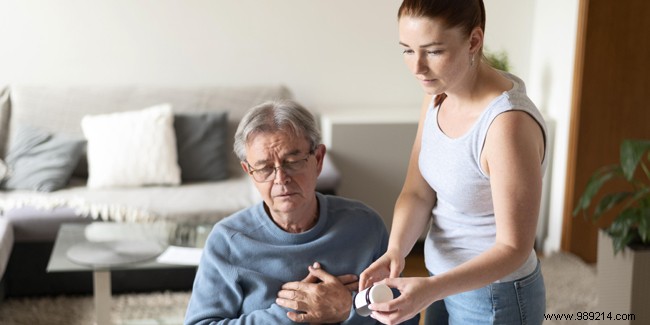
Elderly people who live at home but who encounter difficulties due to illness, loss of autonomy, disability, etc., have the possibility of being helped on a daily basis by professionals who come to their home in this goal. It may be a Social Life Auxiliary, who holds a state diploma, whose role is to keep the person concerned at home through support intended to preserve or restore their autonomy. Home Help also intervenes in the homes of vulnerable people, including a large proportion of seniors, who find it difficult to carry out the acts of ordinary life, and more particularly those related to the maintenance of their home, but not only .
The Social Life Auxiliary (AVS) designates a person who comes to the homes of weakened, dependent or age-related people to help them on a daily basis and allow them to stay in their home. This professional can also deal in this way with people with disabilities or with an illness that prevents them from performing acts of daily living on their own.
Thus, the Social Life Auxiliary intervenes, for example, in the homes of these people, most of whom are seniors, to help them get up in the morning, go to bed in the evening, wash themselves, provide hygiene care other than that cared for by nurses. For people with disabilities, the Social Life Assistant can also help them to get fitted.
The Social Life Auxiliary also has the role of caring for or accompanying the people he or she is looking after in the acts of daily life, such as the preparation of their meals, in particular if the person follows a specific diet, or the performance of their household chores.
This professional who intervenes in the homes of people who are vulnerable, with a loss of autonomy, etc., is also present to help them with their administrative procedures if necessary, to do their shopping, or even accompany them on their outings. He may also be called upon to advise and arrange the accommodation space to promote safe circulation.
In general, it also has the mission of promoting the activities, family and social relations of the person, as well as ensuring respect for their rights, freedoms and life choices. The Social Life Auxiliary is thus an essential relay for transmitting information to the entourage of the person he is caring for, or to the services for which he works.
The Social Life Assistant is present for a few hours a day in the homes of people who need help on a daily basis. His schedule is set according to the degree of dependence of the people with whom he or she works. In fact, the Social Life Assistant can intervene at their home early in the morning, late in the evening, on weekends and on public holidays.
In general, she works (the vast majority of Social Life Auxiliaries are women) most often part-time and are paid by the hour on the basis of the minimum wage.
Social Life Auxiliaries are generally employed by organizations such as family allowance funds, municipal social action centers, associations or private companies. They can also be employed by the municipalities.
In all cases, they are part of a multidisciplinary team also made up of nursing staff who determine the aid to be provided according to the state of health and dependence of the person concerned and whom the Auxiliary of Social Life must respect as far as she intervenes in the homes of the elderly people she accompanies.
To become a Social Life Auxiliary, it is necessary to hold at least the State diploma of educational and social support (DEAES), CAP level, which offers qualification in three different areas:support for home life; support for life in a collective structure; and support for inclusive education in ordinary life.
Like the Social Life Auxiliary, Home Help intervenes in the homes of people who encounter difficulties in taking charge of daily life tasks on their own, therefore also with the elderly. On the other hand, only the Auxiliary of Social Life is qualified to help on a daily basis a disabled person who needs care, other than medical, in his everyday life.
Home Help has the mission of taking charge of the home maintenance tasks of the person with whom it intervenes (in this profession, again, the vast majority of these professionals are women). She can take care of her housework, laundry, ironing, small sewing jobs, etc.
Depending on the needs of the person they are caring for, the Home Helper can also help them prepare their meals, possibly wash themselves, etc. She can also be in charge of shopping, or even accompanying the person on their travels or helping them with certain administrative procedures if necessary.
Home Help can be employed directly by the person with whom it works at home, by a personal services company, by a private home help association or a structure that is in principle municipal.
Her working hours correspond to the times of the day when her presence is most useful, most often at mealtimes or when the person with whom she is working gets up or goes to bed. Depending on the case, a Home Helper may also be called upon to work on weekends and public holidays.
No specific diploma is required to work as a Home Helper, but qualifications or experience in the personal services sector are most often required.